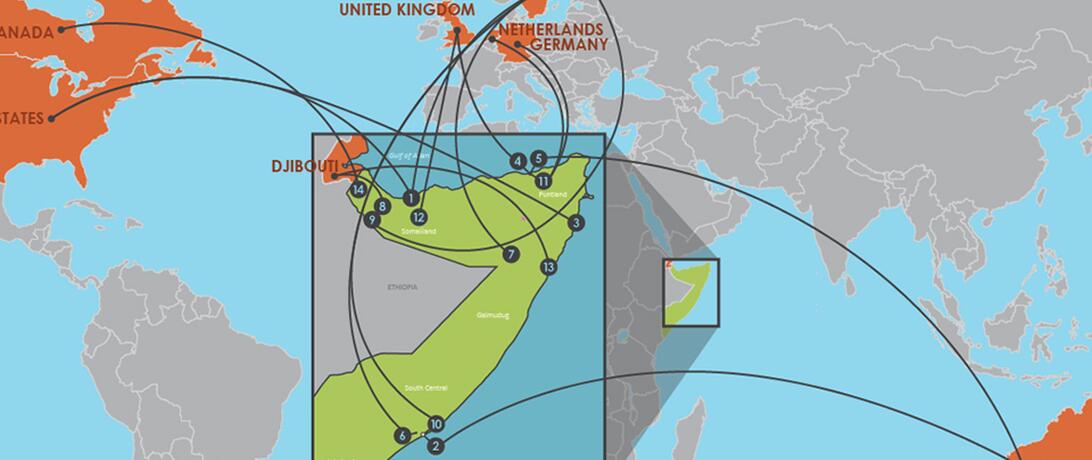
Today the world observes International Day of Family Remittances (IDFR), a day to focus attention on the significant financial contributions refugees, immigrants, migrant workers, and diaspora populations make to family members who remain in fragile states around the world.
Each year more than $500 billion is sent home from 250 million migrants worldwide, according to IDFR. It is estimated that Somalia alone receives more than US$1.3 billion annually in remittances from its worldwide diaspora, according to Shuraako, a program of One Earth Future, which connects Somali entrepreneurs with access to finance. These family remittances amount to twice the official development aid, five time the size of annual humanitarian aid, and equal to 24 percent of the region’s gross domestic product, making the Somali economy one of the most remittance dependent in the world.
These important flows of diaspora funds to the Somali economy continue despite the country’s many challenges. While remittances offer a lifeline, investment in the Somali region has a variety of lasting positive impacts on development that remittances do not provide. Many entrepreneurs in Somalia have leveraged financing from diaspora to invest in businesses that support job creation, increase food availability and support drought-resiliency through solar powered irrigation systems and greenhouse technology.
Shuraako’s 2016 Somali Diaspora Investment Report clearly shows there is huge potential for increased investment from the global diaspora. Diaspora communities have both the means and motivation to invest in their home countries and support business growth. Business growth is important to all economies in general, but is critical in many developing economies because it generates employment opportunities. The need for employment is particularly stark in a country like Somalia, where an estimated 67 percent of 14-29 year olds remain unemployed.
Larry Sampler, president of One Earth Future said, “Overall, remittances have a role as an informal social safety net, and their positive contributions may outweigh their negative side effects, particularly in the world’s poorest nations. However, they are only a stopgap measure against extreme poverty. In order to achieve self-sustaining growth, a country must move beyond a dependence on remittances and engage their diaspora community in ways which produce longer-term development benefits.”
Family remittances are a huge engine of growth, particularly in fragile states like Somalia because access to finance is severely limited. Shuraako, along with partners like BiD Network and the International Fund for Agricultural Development (IFAD) through its Somali AgriFood Fund project, are committed to harnessing the power of the Somali diaspora to expand financing, invest in merit-worthy businesses, and improve skills and knowledge.
Media Materials:
Case Studies— http://shuraako.org/publications/somali-agrifood-fund-case-studies
Diaspora Investment Success Story: Barwaaqo video: https://youtu.be/9U7fD3JkB60
Media Contact: Debra Havins, 303-533-1712 or [email protected]
About Shuraako:
Shuraako is a program of the One Earth Future (OEF), which operates throughout Somalia. Shuraako, which means “partnership” in Somali, connects micro, small and medium sized enterprises with investors to create jobs and stimulate economic growth, contributing to a more resilient and peaceful Somalia.
About One Earth Future:
OEF is a self-funded, private operating foundation seeking to create a more peaceful world through collaborative, data-driven initiatives. OEF focuses on enhancing maritime cooperation, creating sustainable jobs in fragile economies and research that actively contributes to thought leadership on global issues. As an operating foundation, One Earth Future provides strategic, financial and administrative support allowing its programs to focus deeply on complex problems and to create constructive alternatives to violent conflict.
###